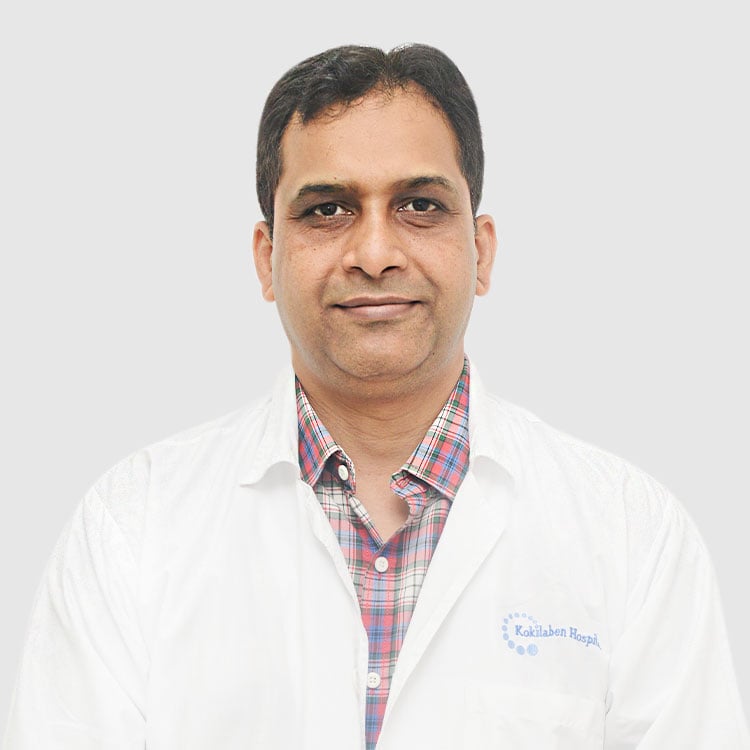Malignant primary brain tumours are cancers that originate in the brain, typically grow faster than benign tumours, and aggressively invade surrounding tissue. Although brain cancer rarely spreads to other organs, it will spread to other parts of the brain and the central nervous system.
The standard treatment for brain tumours includes surgery, radiation therapy, and/or chemotherapy. In general, radiation and chemotherapy treatments are used as secondary or adjuvant treatments for malignant tumours. However, radiation and chemotherapy may be used without surgery if the tumour is inoperable.
At Kokilaben Hospital, we have a dedicated team of Neurosurgeons, Paediatric Oncologists , Medical Oncologists and Radiation Oncologist specialised in Neuro-oncology. There are dedicated Neuro-radiologists and Neuro-rehabilitation experts to provide valuable support. Technologically, Kokilaben Hospital is one of the best-equipped hospitals to treat brain tumours with Intra Operative MRI system (IMRIS), which can detect residual tumours during surgery itself, thus assisting the surgeon to achieve maximal safe resection of tumours. The specialists also use the latest operative techniques with Navigation, Awake Surgery, and Neuroelectrophysiology Monitoring with Motor Evoked Potentials (MEP) to assess the functionality of descending motor pathways and Somatosensory Evoked Potentials (SSEP) to assess the function of a patients spinal cord during surgery. The Radiation Oncology setup provides the latest in Radiotherapy to deliver safe and precise radiation including Radiosurgery and Stereotactic Radiotherapy.
At Kokilaben Hospital, in the last eight years, we have treated more than a thousand brain tumours. With the use of ultramodern techniques our success rate is comparable to international benchmarks.
Background and diagnosis : A 31-year-old man suffered from episodes of generalised epilepsy. He was well-built, about 7-ft tall, with well-developed facial features and limbs. Proud of his build, his family addressed him as The Great Khali, the international body builder. When he approached us for his epilepsy, we made him undergo clinical examination and found that he displayed all the features of acromegaly–a tumour in the pituitary gland. The pituitary gland secretes hormones, including the growth hormone necessary for normal growth. In his case, the tumour, which was detected by an MRI, was producing an excessive amount of growth hormones–he was found to have high levels of IGF1 (insulin-like growth factor 1) and growth hormones in the blood. Besides this, he had another brain tumour (low-grade glioma) responsible for epilepsy.
Treatment : At Kokilaben Hospital, under navigation guidance, the tumour was excised using an endoscope through the nose with impunity, without causing any damage to the normal pituitary gland. This saved the normal secretions of his hormones. The total excision of the tumour was confirmed using the Intra Operative MRI (IMRIS) before reversal of anaesthesia and bringing him out of the operation theatre.
Outcome : As expected, the patients growth hormones and IGF1 came down to normal limits. Over the next three months, his acromegaly features reversed significantly. He also underwent surgical excision of the glioma. He is now doing well and is seizure-free.

Neurosciences/Neurosurgery, Minimal Access Surgery
Brain Tumour Surgery, Minimal Invasive Spine Surgery, Trigeminal Neuralgia Surgery, Stereotactic Radio surgery, Paediatric Neurosurgery